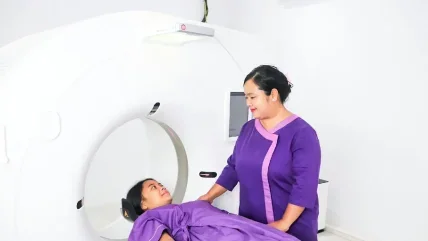
GE HealthCare has teamed up with the University of California San Diego (UCSD) School of Medicine to improve women’s pelvic health by enhancing imaging protocols and techniques.
The collaboration aims to develop new magnetic resonance imaging (MRI) protocols for female-specific diseases and conditions of the pelvis and develop educational materials for clinicians.
The joint efforts would help clinicians make more informed decisions, diagnose diseases and conditions faster and enhance access to quality pelvic care for women, said GE HealthCare.
GE HealthCare research and scientific affairs global vice president Erin Angel said: “Diseases and conditions impacting female patients below the belly button are often misdiagnosed, misunderstood, and understudied in our industry.
“We are optimistic that the results of the project could support more standard adoption of advanced imaging techniques and ultimately empower clinicians to make more informed decisions.
“We believe this project can help bridge an important gap in women’s healthcare and increase access of innovative solutions to women around the world.”
UCSD School of Medicine Center for Translational Imaging and Precision Medicine (CTIPM) will be used as the collaborating site for the project.
The project will be led by UCSD Radiology and Bioengineering associate professor and CTIPM deputy director Rebecca Rakow-Penner.
It will focus on a broad range of diseases of the female pelvis, including better visualisation of endometriosis and ovarian cancer using MRI techniques in both clinical and academic settings.
The project also aims to create training and educational materials, available as resources for GE HealthCare MRI users worldwide.
By increasing access to advanced imaging techniques for clinicians, the project will enable effective diagnosis and management of pelvic diseases and conditions for female patients.
UC San Diego Health imaging and radiology services director Rebecca Rakow-Penner said: “We aim to democratise advanced imaging for women and increase access to high-quality care in the San Diego community and beyond.
“Women’s care requires a personalised approach and we hope to advance care solutions for women by improving the diagnosis and management of female pelvic conditions, both benign and malignant.
“The results of the collaboration will have the potential to help improve the patient experience and equip clinicians with a toolset to deliver a higher level of care that every woman deserves access to.”






